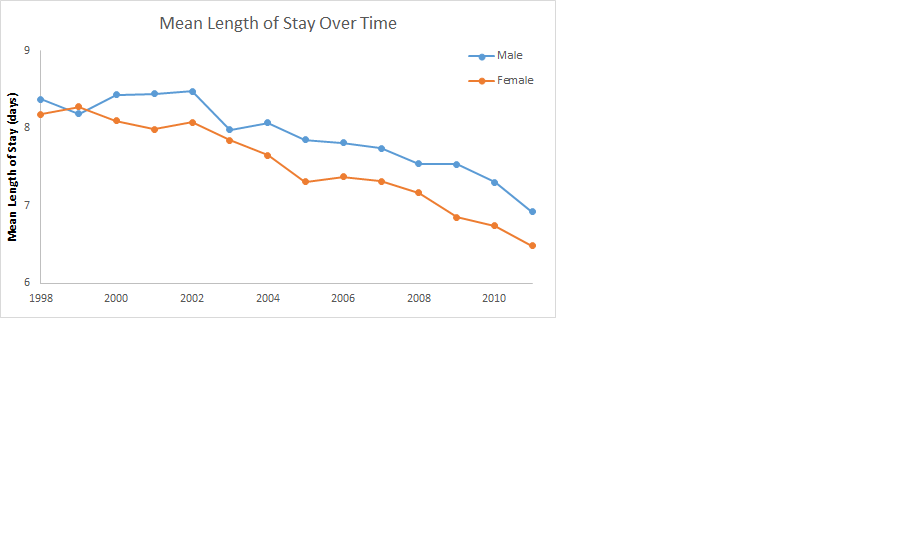C. E. Cauley1,2, D. Chang1,3, L. Bordeianou1, A. B. Haynes1,2,3 1Massachusetts General Hospital,Department Of Surgery,Boston, MA, USA 2Ariadne Labs At Brigham And Women’s Hospital And The Harvard T.H. Chan School Of Public Health,Boston, MA, USA 3Codman Center Center For Clinical Effectiveness In Surgery,Boston, MA, USA
Introduction:
Length of stay (LOS) after elective colectomy has markedly decreased with the advent of enhanced recovery pathways, yet there remains substantial variability in postoperative stays. This study aims to assess the influence of gender on LOS after elective colectomy for colon cancer.
Methods:
Patients undergoing elective colectomy for colon cancer between 1998 and 2011 were identified from the Nationwide Inpatient Sample. Multivariate logistic regression modeling was used to determine if gender was a significant predictor of extended postoperative LOS (> 8 days) controlling for potential confounders, including year of operation, race, age, comorbidity, complications, and hospital factors.
Results:
The cohort consisted of 88,778 patients, 40,526 (45.65%) men and 48,252 (54.35%) women. The mean LOS was 7.7 days (SE = 0.020), which decreased from 8.3 to 6.6 days over the study period, with a mean stay of 7.9 days (SE = 0.031) versus 7.5 days (SE = 0.025) for men and women, respectively (p<0.001). Multivariate logistic regression analysis revealed lower odds of extended LOS in women (OR 0.90; 95% CI: 0.87-0.94). This gender difference was greater in patients over 60 years old, and has continued despite decreasing LOS in more recent years.
Conclusion:
Men have a longer length of stay after elective colectomy for colon cancer, controlling for patient and operative characteristics. This difference in healthcare utilization between genders despite increasing standardization of clinical care should be explored further to determine if factors such as social support influence this phenomenon.
